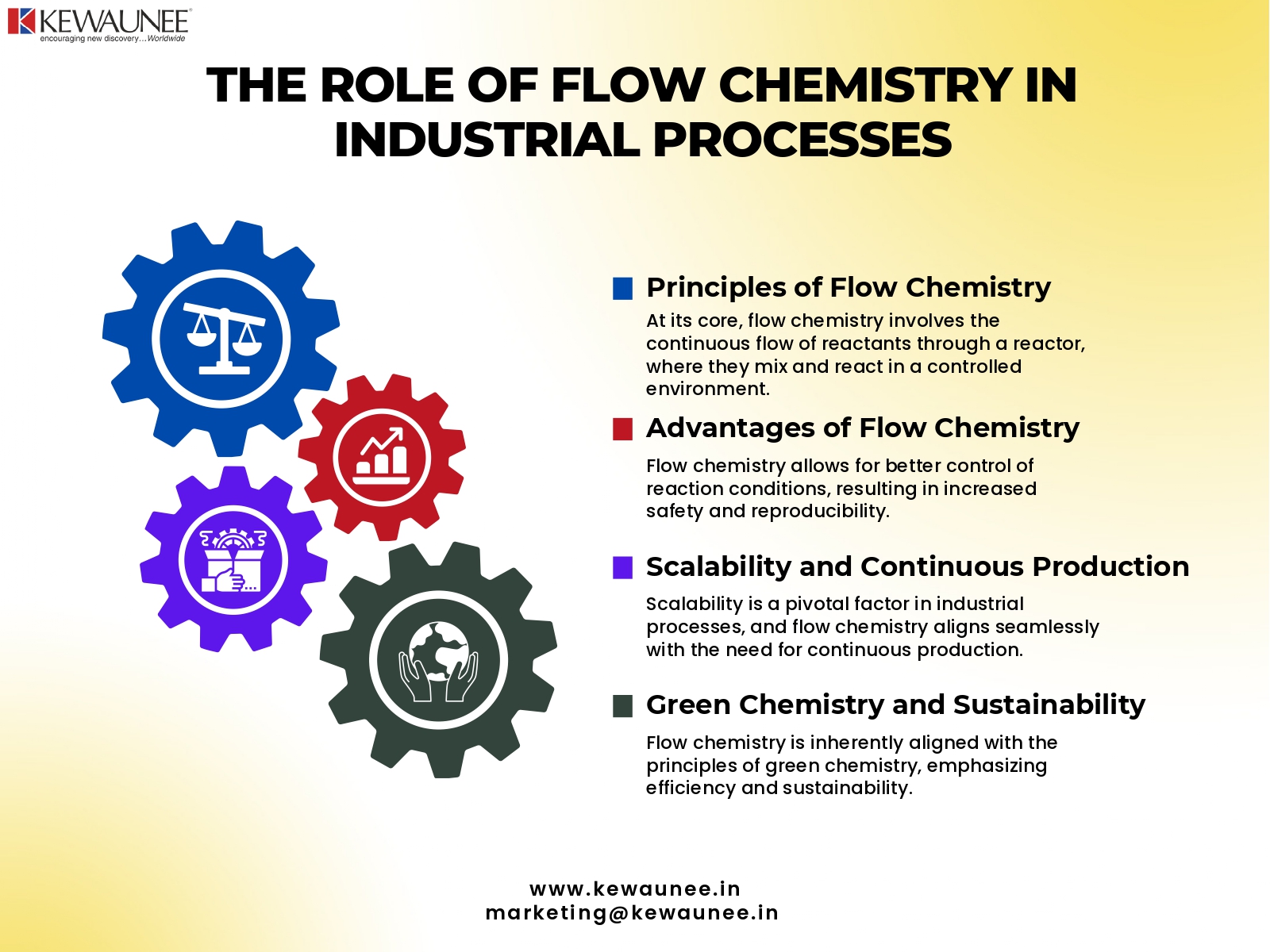The Role of Flow Chemistry in Industrial Processes
In the ever-evolving landscape of industrial processes, flow chemistry emerges as a revolutionary force, transforming traditional manufacturing approaches.
This blog delves into the profound role of flow chemistry in reshaping industrial processes, exploring its principles, advantages, and the paradigm shift it brings to the manufacturing realm.
1. Unveiling the Principles of Flow Chemistry
Flow chemistry, often referred to as continuous flow chemistry, represents a departure from traditional batch processes. At its core, flow chemistry involves the continuous flow of reactants through a reactor, where they mix and react in a controlled environment. This departure from batch processing offers unique advantages in terms of control, scalability, and efficiency.
The principles encompass precise control of reaction parameters, rapid mixing, and the ability to conduct reactions at extreme conditions. By embracing these principles, flow chemistry opens avenues for enhanced reaction rates, improved selectivity, and the synthesis of complex molecules that might be challenging in traditional batch setups.
2. Advantages of Flow Chemistry in Industrial Manufacturing
The adoption of flow chemistry brings a multitude of advantages to industrial manufacturing. Flow chemistry allows for better control of reaction conditions, resulting in increased safety and reproducibility. The continuous nature of the process enables seamless scale-up, facilitating the transition from laboratory-scale synthesis to large-scale industrial production.
Other advantages include reduced reaction times, increased yields, and the ability to perform reactions that may be impractical in batch systems. The efficiency gains translate to resource savings, making flow chemistry an environmentally friendly option in addition to its manufacturing benefits.
3. Scalability and Continuous Production
Scalability is a pivotal factor in industrial processes, and flow chemistry aligns seamlessly with the need for continuous production. The ability to maintain consistent reaction conditions at different scales streamlines the transition from laboratory experimentation to full-scale manufacturing.
Continuous production in flow chemistry is particularly advantageous in scenarios where a constant supply of a product is required. The steady flow of reactants ensures a consistent output, reducing the need for storage and the associated challenges of batch processing.
4. Green Chemistry and Sustainability
Flow chemistry is inherently aligned with the principles of green chemistry, emphasizing efficiency and sustainability. The continuous nature of the process reduces waste generation, and the ability to perform reactions at higher concentrations enhances atom economy.
Moreover, the efficient use of reagents, reduced solvent volumes, and the potential for safer reaction conditions contribute to a more sustainable approach. As industries increasingly focus on environmentally conscious practices, flow chemistry emerges as a frontrunner in supporting these goals.
Summary
Flow chemistry stands at the forefront of revolutionizing manufacturing processes, bringing efficiency, scalability, and sustainability to the industrial landscape. From unveiling its fundamental principles to exploring the advantages, scalability, and contributions to green chemistry, this blog showcases the transformative impact of flow chemistry.
As industries embrace this innovative approach, the potential for enhanced productivity, resource savings, and a greener footprint beckons, marking a paradigm shift in the way industrial processes are conceived and executed.
Comments are closed.











